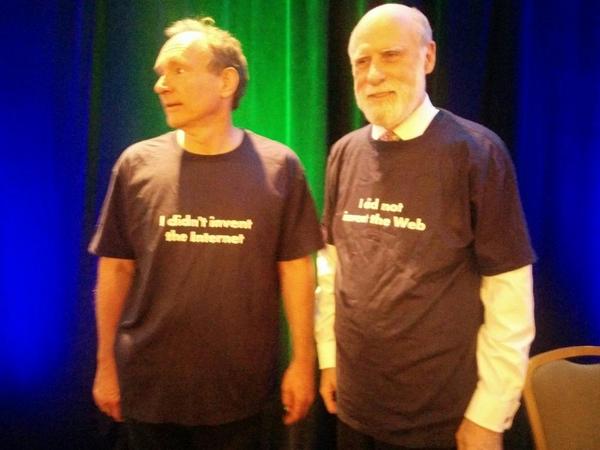My friend Billy’s wife, Kate Gross, has been writing some pretty amazing stuff recently.
Here’s something to think about as you prepare for Christmas.
My friend Billy’s wife, Kate Gross, has been writing some pretty amazing stuff recently.
Here’s something to think about as you prepare for Christmas.
Today, in an astonishing feat of daring exploration, I doubled my culinary repertoire.
I cooked some pasta!
(Up to this point in my life, I had only ever tried baked potatoes.)
It turns out not to be too hard, as long as someone else has made the sauce.
I also used a colander for the first time. That was easy too.
Finding the cupboard in which Rose keeps such things, on the other hand…
I’ve just spent a happy hour or so sitting by the fire, darning the elbow of an old sweater. Yes, darning. I can positively hear some of your eyebrows rising into a skeptical arch. It’s not really the normal pastime of an aspiring high-tech entrepreneur, is it?
But I’ve always found it strangely satisfying. It’s exceedingly easy to learn, but it’s a kind of miniaturised DIY structural engineering. Then there’s the challenge of weaving together the limited range of wools I normally have available in such a way that they approximate the original colour and texture of the surrounding weave: a process which has something of a Photoshop feel to it. And finally, there’s the moral satisfaction of not allowing a much-loved and perfectly functional garment to be lost simply because of a small hole. It’s also, I find, completely absorbing, which is sometimes a welcome distraction.
I’m certainly far from an expert, and I’m not sure my left elbow would bear any very close inspection, but since I don’t anticipate meeting any close-elbow-inspectors in the next few months, I think I should get away with it. There are now probably dozens of YouTube videos which will teach you to darn – why not give it a try? You know you want to…
Planet Labs has a plan, a plan which is exceedingly powerful, partly because it is so brilliantly simple. And it seems to be working.
One of the tragedies of the accelerated ‘internet time’ is the speed at which advertisers can discover our weaknesses. It took several centuries for tabloid newspapers to evolve their attention-grabbing headlines with minimal content and maximum emotion. FURY AT VICAR’S CELEB SEX ROMPS. (‘Fury’ is a word which seems only to be used now on the front pages of tabloids and local papers.)
Of course, gentle reader, you and I would never buy a paper with that headline. Despite the temptation, we know in the end it will be unsatisfying. It’s journalistic pornography, appealing to our baser instincts. Resisting the lure is part of our education, our self-control. We laugh as we pass by, at the poor, less-intelligent souls who succomb to this ultimately unrewarding titillation.
But, in just a couple of decades, the web has allowed this process to be refined to an extreme degree. Techniques such as A/B testing enable publishers to play with content, delivering version A to one group of 10,000 viewers and version B to another 10,000 to see which delivers the most traffic/sales/ad-clicks. This can be repeated, like an iterative fractional distillation, allowing the drug to be purified as never before.
The web’s equivalent of the tabloid headline is the link text – the thing that stops you walking past and persuades you to look inside. The process can be applied there too, and we see the results everywhere: links which convey even less information and appeal purely on the gut level. “Three old grannies got up on stage and you’ll never believe what they did next!” “10 things no mother should ever do!” “This one weird tip will transform your sex life!” “The most shocking video you’ll ever see!” They are designed, of course, not to convey information, because if you had any at that point, you could decide whether or not to click. Instead, they just tell you that you really must click, because otherwise you’ll be missing out, and we’ll tell you why once you’ve done so. Because, of course, we get paid by our advertisers if you visit our site, but not if you just read the link.
Now, the tragedy is that, unlike with tabloid newspapers, the content sometimes is worth seeing. The video is amusing, or cute, or whatever, and often was carefully created to be so, because they want you to share a link on Facebook, where, of course, it will be automatically augmented with their carefully-baited title.
A group called Quick Sprout recently published a guide on How to write the perfect headline. I’m not linking to their site directly because the pop-up ads are much too annoying, but you can find it via the site above. Their tips summarise the industry’s discoveries:
They have some nice examples of this last rule:
But I’ve noticed a strange thing recently. I’m starting to feel ashamed when I click on links like this, as if I couldn’t resist buying the tabloid; I couldn’t help eating the junk food. I’m actively resisting sites that are linked to in this way, and I have a lower opinion of sites that display the links. Am I alone?
Take the Independent, for example, a once-reasonably-respected UK paper. The bottom of every page now looks like this:
This is a tame set of examples which just happened to be on the first page I looked at, but really! “20 Hot Celebs You Didn’t Know Are Jewish”? We care whether they’re Jewish? They can’t be Jewish because they’re ‘hot’? Come on, Indie…! What are we meant to think of your standards?
So I hope we’ll start to see a backlash against this blatant manipulation. Let’s start educating people that, if someone pops out at you in the street and says, “Come down this alley with me, you’ll never believe what’s at the end of it!’, they may not just be doing it for your benefit.
As the old adage goes, if you can’t tell what they’re selling, it’s because you’re the product. So ask yourself this, the next time you see an irrestible link: Do you feel compelled to click, or are you making the decision?
Because there’s one sure-fire way to know if you’re the product. It’s when you’re the thing being delivered.

This has been circulating on Twitter, courtesy of Jeremy Geelan – taken at W3C20.
(For those not in the know, Tim Berners-Lee is on the left, Vint Cerf on the right, and the joke is on those who don’t know the difference between the web and the ‘net.) Lovely.
I’ve often quoted the statistic that, on 11 Sept 2001, about 3,000 people died in terrorist attacks, and, on the same day, about ten times that many died of starvation. Our brains find it hard to respond appropriately to such data.
There’s a very nice LA Times article by Daniel Gilbert, a Harvard psychology professor, talking about the same issue with respect to climate change. It was published… ahem… 8 years ago, but was just brought to my attention by Ian Yorston.
Extract:
That’s why we worry more about anthrax (with an annual death toll of roughly zero) than influenza (with an annual death toll of a quarter-million to a half-million people). Influenza is a natural accident, anthrax is an intentional action, and the smallest action captures our attention in a way that the largest accident doesn’t. If two airplanes had been hit by lightning and crashed into a New York skyscraper, few of us would be able to name the date on which it happened.
Global warming isn’t trying to kill us, and that’s a shame. If climate change had been visited on us by a brutal dictator or an evil empire, the war on warming would be this nation’s top priority.
An enjoyable read.
By nature, I’m somebody who probably errs on the side of openness rather than paranoia when it comes to privacy. I’m also very aware of how fortunate I am, though, to live in a country and under a government and legal system where I can afford to take this view.
Glenn Greenwald’s excellent TED talk gives some other reasons for caring about privacy.
There is, though, I think, a balance to be struck here; it’s also worth mentioning that complete privacy and anonymity doesn’t always bring out the best in human nature. There’s a reason why people wear hoodies, and there’s a reason why newsgroups that allow anonymous posting are often filled with trolls (at best), and vicious bullies (at worst). It is important that many of our activities are subject to some peer review, at least, if not legal or governmental review. Also, investigative journalists, of course, tend to assume that they and their commercial backers are somehow entitled to monitor people’s private activities, where other commercial interests or democratically-elected governments are not. Overall, though, I think he’s on the right track.
He also hints at something I hadn’t previously considered: that my religious upbringing might make me more accepting of constant invisible surveillance than I might otherwise be! Now, getting some real statistics on that would be an interesting sociological study…
Update: I’ve had a phone call from one of the directors of Matki – see the end of the post.
In the small hours of yesterday morning, one of the curved panels of our expensive and otherwise perfectly-adequate Matki shower enclosure exploded.

Most of the glass ended up on the floor; in fact, I first knew something was amiss when I couldn’t open the bathroom door because of the glass fragments jammed underneath it. My first thought was ‘Who broke a windscreen in my bathroom?’

But I use the word ‘exploded’ advisedly, because it clearly didn’t just collapse. Some of the glass was flung further afield.

There were even some pieces in the toilet pan, which has no direct line-of-sight from the original panel, so I guess they must have been thrown against the opposite wall with sufficient force to have bounced off and back across the (admittedly small) room into the loo.
All of which makes me wonder what this would have been like had anyone been in the room, or in the shower, at the time.
The shower was installed just under a year ago by a careful and seasoned professional, according to the included instructions, and has had nothing but normal use since then. So I called Matki, assuming that it would be replaced immediately under guarantee with profound apologies and that they’d send someone round to sort it out promptly. After all, they might have had a rather nasty law suit on their hands if someone had been blinded by flying glass.
However, I forgot two things – firstly that we’re in Britain, where such gestures are not common, but secondly, I suppose, that any such action might be taken as an admission of culpability. Is the law enough of an ass that a gesture to make an otherwise disappointed customer into a happy customer is likely to backfire? Anyway, this customer stayed disappointed, though they did give me a modest discount on the replacement panel.
I get to spend a couple of hours in my pyjamas clearing up glass. I get to pay my plumber to fit the new unit. I get to pay Matki 140 quid for the new panel. I get a shower I can’t use for two weeks. Ah, well. Matki, in exchange, get this blog post. 🙂
Update, Mon 13th Oct
I thought it only fair to inform Matki of this post, and give them the chance to respond. This morning I received a call from one of the directors, Des Rocks, who struck me as a very fine and very rational fellow. He was most apologetic, and we had a good discussion about both glass manufacture and social media!
I mentioned to him that the customer service person I had spoken to seemed polite, efficient and businesslike, but that his hands had clearly been tied by the company’s policy. I was informed that they were changing some of their policies now to allow a little more flexibility. They’re also sending someone to fit a replacement panel, and will not be charging me for it.
All of which means that I’m now once again a happy Matki customer, and remain impressed with the company and its products. It’s sad that I had to resort to a blog post to get to this point, but I’m willing to give them the benefit of the doubt and assume that these events are very rare, and that getting them fixed is less likely to be a problem for customers in the future. All’s well that ends well.
According to the Tesco website, the Samsung Galaxy S4:
detects your face and motions
I think the latter may be taking personal computing a bit too far.
I told Rose, and she asked, "Can it detect them from the expression on your face?"
I remember, a few years ago, seeing some Aberdeen Angus beefburgers in my local supermarket labelled as “Not less than 100% beef!”. I turned them over to look at the list of ingredients. Yes, there was a list. You’d think they might not need a list for something that was really 100% beef.
This week, I spotted a bottle of shampoo.
Just what do people think they mean by ‘up to 100%’? Are they trying to reassure us that it isn’t more than 100% effective?
Readers will know that posts on Status-Q are up to 100% accurate and insightful, and, my friends, I think we should be bothered by such things. At first I was concerned that advertising executives have so little grasp of numbers. But not all advertisers are stupid, which led me to the far more worrying conclusion that this kind of thing must work on the populace as a whole. Scary.
Now, the more observant of you will have spotted the little asterisk on the bottle, indicating a footnote. So I turned this item over, too, and found it.
* visible flakes from a distance of 2 feet, with regular use
I guess this is their abbreviated way of saying, “we consider an absence of visible flakes at a distance of 2 feet to be 100% effective treatment, and we offer something between this, and no effect at all”. Presumably, also, the treatment appears more effective the further away you get?
Ah well, at least I don’t generally suffer from dandruff, which is perhaps why I’ve been rated, by up to 100% of those asked, as ‘amongst the handsomest men in the world’*.
*when viewed in a crowd of handsome men, from distances greater than 2km.
Almost exactly 15 years ago, a Californian TV channel sent me a webcam. To be precise, they sent me a 3COM camera which came with a PCI frame-capture card. Connecting this up was a bit of a palaver, because I ran Linux on my home machine at the time, and I had to create a new partition and install Windows 95 so that I could run the supplied software. But it was worth it, because this was ZDTV, who were doing an interesting experiment on their Call for Help programme: interviewing people in remote locations using these new-fangled webcams alongside a traditional telephone call.
By the time my segment came, it was well past midnight, and I got a laugh by holding up a clock to prove that I was somewhere in a very different timezone, and by saying that, though they thought they were very advanced in California, they were still in Tuesday, while some of us had already moved on to Wednesday some time ago.
There were other guests on the show, and we made minor history by being the first time ZDTV (and perhaps anyone) had done a three-way call using webcams as part of a live broadcast. The presenter was a very nice chap named Leo Laporte.
Since I seldom saw any American TV, I wasn’t aware at the time of Laporte’s gradually increasing prominence as the host of shows such as The Screen Savers on the same channel (which had by then changed its name to TechTV). But he soon gained more international exposure with the launch in 2005 of the This Week In Tech podcast — affectionately known as TWiT — which grew into the TWiT.tv network, consisting of around 30 different shows. I have been listening to several of them almost since day one.
As the network grew, they built their own studio in Petaluma, California. And it just so happened that I was driving through there on Friday, so I stopped off to have a look.
I stuck my head inside the door and said hello, and the wonderful Debi Delchini immediately welcomed this stranger from across the seas and gave me a guided tour, despite the fact that I had arrived right at the end of her Friday afternoon.
The TWiT studio, though not large, is cunningly divided into half a dozen different sets, to allow different moods for different shows.
The mixing desk in the middle can rotate to face whichever one is in use.
There are cameras everywhere. Unlike traditional studios where large cameras roll about on substantial bases, we are now in a world were adding extra small broadcast-quality cameras is cheap compared to arranging the building around a few bigger ones.
Leo wasn’t there, sadly, but I did get to sit in his chair!
There was, however, a show being recorded: Fr Robert Ballecer’s This Week in Enterprise Tech.
I noticed that he was interviewing two people over Skype.
That’s good, I thought: it looks as if the format has caught on after all.
© Copyright Quentin Stafford-Fraser
Recent Comments